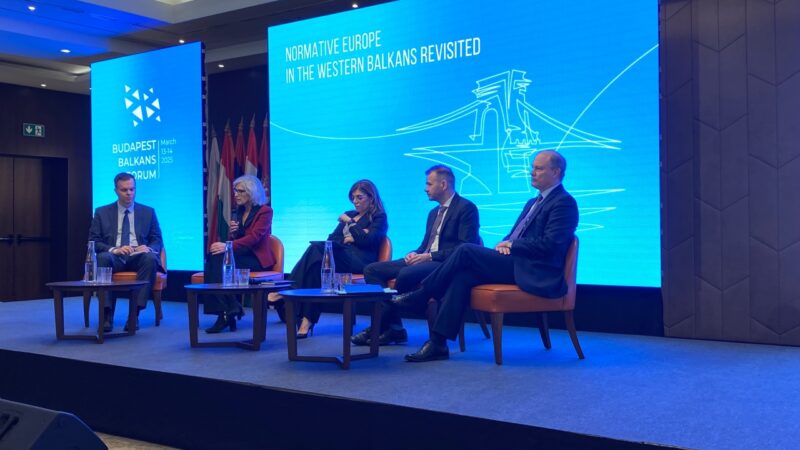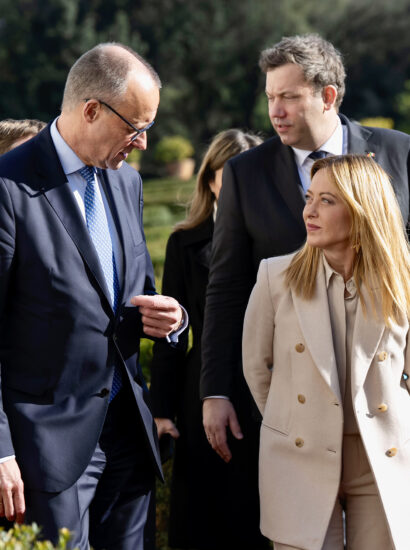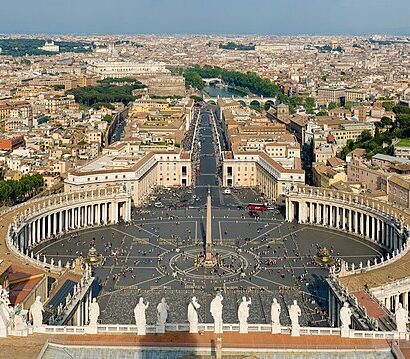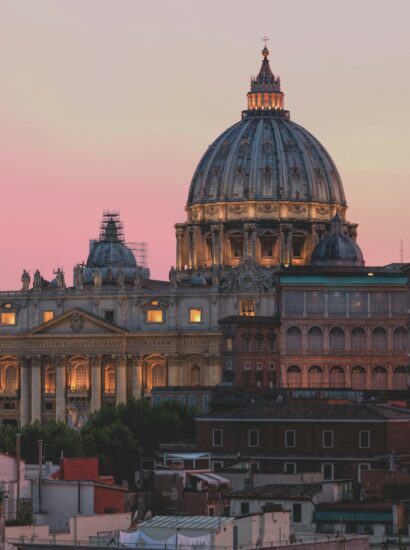“Do we, as EU, have an attraction power? We are here in Budapest, and the Balkans are next door, so we are in the same boat, and we like it. France supports the enlargement of the EU with the Western Balkans. When? As soon as possible,” stated René Troccaz, Special Envoy for the Western Balkans of France, at the Budapest Balkans Forum last week.
For the second time in a row, The Long Brief reports from the Budapest Balkans Forum, a flagship event of the Hungarian Institute of International Affairs (HIIA). While the previous event focused more on security issues, this one is dedicated to the stalled EU enlargement process in the Western Balkans (WB).
The conference brought together six ministers and more than 100 experts and policymakers from five countries: Albania, Bulgaria, Montenegro, Serbia, and Hungary, except the representatives from the Federation of Bosnia and Herzegovina. The latter’s absence is no surprise, given the recent turmoil in the Federation, in which the Hungarian Foreign Ministry was involved. The upcoming (as it turned out, the largest) demonstration in Serbia was not mentioned at the event either.
Hungarian MFA: Hungary is Still Committed to the Enlargement, Other EU Leaders Not So Much
“The Western Balkans is more than just a region knocking on Europe’s door; it is already a highly integrated economic powerhouse and a crucial security partner, surrounded by allied countries. The region exemplifies what the new world order is about connectivity in practice,” reminded Gladden Pappin, President of HIIA, in his opening speech. He added: “As Ukraine’s potential fast-track EU accession becomes a real possibility, the financial and political costs of enlargement demand attention.”
“The story we’re talking about is a sad one; the Western Balkans enlargement is starting to resemble Columbo’s wife: we talk about it all the time, but we never actually see it,” Péter Szijjártó, the Minister of Foreign Affairs and Trade of Hungary, at the ministerial panel called ‘One Market, One Vision: Advancing Economic Integration of the Western Balkans into the EU’.
The minister also considers it very unfortunate that it has been a long time since we welcomed a new member to the European Union (the last time Croatia joined in 2013), while the Community is in a terrible state in terms of security, economy, and competitiveness. “Clearly, we need a refresh, a new energy, something to get us in a better state than we are in. If we ask where this new energy can come from, I see no other solution than the Western Balkans,” emphasized Péter Szijjártó. The minister called it grossly unfair that Albania, Bosnia and Herzegovina, North Macedonia, Montenegro, and Serbia have been waiting an average of 14.5 years to become members of the European Union.
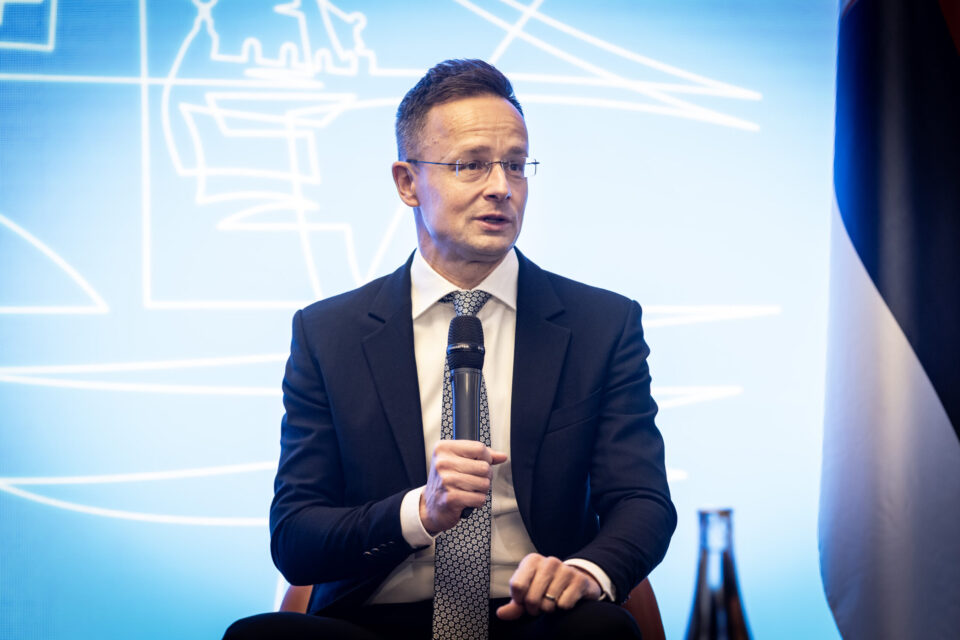
Péter Szijártó, minister of Foreign Affairs and Trade of Hungary, at the ministerial panel of the Budapest Balkans Forum 2025 (Source: x.com/hiia_budapest)
“While in public, the leaders of some EU Member States speak of enlargement in a positive tone as a priority. In contrast, behind closed doors, integration supporters are already in the minority,” the minister added.
“Hungary is certainly a committed supporter of the accession of the Western Balkans, including Serbia, to the EU. I am one of the few who say so openly,” pointed out Péter Szijjártó.
“I have to believe there is still clarity in balancing the integration process within the EU. Yet, we have no guarantees that gradual integration won’t replace full membership. We are increasingly resembling EU countries, but enlargement fatigue remains very real,” reflected Tanja Miscevic, Minister of European Integration of Serbia.
Both Sides Have to Deliver
“We may be discussing different deadlines, but the most important thing is to send a clear message to the Western Balkans region: we are ready to do our homework,” said Zsolt Bunford, Special Envoy of the Prime Minister of Hungary for the Western Balkans, Prime Minister’s Office of Hungary at the panel discussion ‘Normative Europe in the Western Balkans Revisited’.
René Troccaz referred to President Emmanuel Macron’s speech at the 2023 Bratislava Globsec Forum: “We have a totally different situation on the European continent with the war in Ukraine, the countries of the western Balkans waiting more than 20 years for the EU accession we now have to speed up the process, we have to be coherent.”
The Special Envoy added: “We’ve seen a shift in our policy, clearly expressed by our president, to stay coherent. Coherence comes down to two things: the EU must deliver collectively, and candidates must deliver as well. We need to work to stay true to our own commitments as the EU. Our roots are our strength.”
“Political support alone is not enough; these countries need to meet EU criteria. It’s not the most attractive topic because it’s technical, not big political talk, but this is the essential groundwork,” joined the panelists Ulrike Hartmann, Director of the Department for Southeast Europe and EU Enlargement, Federal Ministry for European and International Affairs.
The EU is not an open bar where you can choose what you want. We have our roots, what’s matter for us, it is our strength. We don’t want to be the EU only a market, it has to be also something based on shared values,”
concluded René Troccaz.
***
The Long Brief asked Kurt Bassuener, a Balkan expert from the USA, to delve into the current situation in the Western Balkans. Kurt is a co-founder/senior associate at the Democratization Policy Council (DPC). He is a PhD at the University of St. Andrews’s Centre for the Study of Terrorism and Political Violence.
First, could you please briefly introduce your organization?
We’re a small, Berlin-based think tank; we are more of a network. I’m based in Sarajevo; I have colleagues in Sarajevo, Berlin, Brussels and Washington. We all have backgrounds from the 1990s Balkans wars, which we all got involved in. So, we set up the DPC in 2005 to try to press established democracies to have policies that were in concord with what established democracies state their values are: functioning democratic systems, rule of law, political and legal accountability, and human rights. Generally, the infrastructure that supports human dignity.
How did you end up in Bosnia and Herzegovina?
I established myself as a Balkan specialist in the early 1990s. I worked with an organisation set up by two of the three American diplomats who resigned in the summer of 1993 over our non-intervention in Bosnia because they thought we should have intervened then. So we had hoped that we’d be able to expand out of the Balkans. We did, of course, a little later, in 1995.
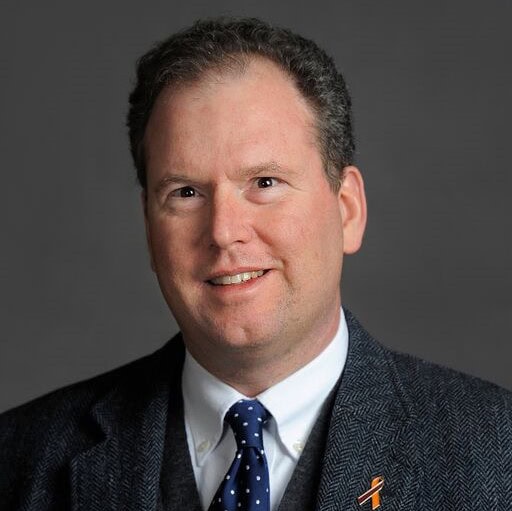
Kurt Bassuener
You’ve already been living in Bosnia for twenty years. What do you think of the Federation?
When I arrived in Bosnia and the Balkans and after I’d been working there a while, I thought I’d developed a sort of analytical toolbox to understand this area. I didn’t think it was applicable elsewhere. Now, I’m discovering that it’s applicable to my own country. I would posit that we’re more divided at the popular level in the United States than the Bosnians are. The democratic values that we proclaimed in America, you know, at the top, they’re not proclaiming them the same way anymore. But Europe still does.
In Bosnia, a structural manifestation compels a lot of the division. Although, Bosnia is, understandably, a sideshow when you look at it from Brussels or Washington.
Let’s move on to Washington’s regional policy in the Balkans. How do you evaluate the current and former administrations’ approach to the region, especially to the WB countries?
I would differentiate it, you know, up until about 20 years ago, and even subsequently, there was a bipartisan general consensus about the main goals. There may be some differentiation in priorities, but the idea of a whole, free, prosperous Europe at peace became a common goal.
I would say, and this goes for both the United States, the EU, and the wider democratic West, that we’ve been on bureaucratic autopilot for 25 years.
We’ve never revisited those presumptions. For one, “if we open the door to the EU and NATO, the governments are going to make reforms, and these changes the way they operate.” It was presumed that they were democratically accountable. They’re not, as the demonstrations in Serbia “demonstrate it” again (We spoke one day earlier of the biggest Serbian protests in history – The Editor ). Because when we want something, say a lithium mine, we know exactly who to talk to and how to get it done.
So, we actually engaged with these governments, although we know their real operating system. But we pretend that this is actually democratic machinery.
It depends on which country you are talking about, it is either autocratic or oligarchical. If you’re looking at the Balkan people’s perspective, you could say it is hypocrisy from the EU as it was from the Biden administration.
Could it be that the West is only pragmatic about these autocratic Balkan regimes because of their investment opportunities already there?
In practice, it wasn’t about democracy for everybody; it was about “you need to align with the already established democracies against China and the Russians and your alignment matters more than your actual practice.” It’s amoral, I would say.
Kurt BassuenerWe have another player in the Balkans, Hungary. What do you reckon about Budapest’s alleged support to Milorad Dodik to disrupt Bosnia and Herzegovina? Can Hungary be a Trumpian vanguard?
Clearly there’s the direct connection with Mar-a-Lago, I mean, there’s a lot already there. Thus far, it hasn’t been realized. But coming back to the Hungarian role regionally, the Hungarian leadership seeks others – they would call themselves national conservatives, and I would call them reactionary partners. They want these countries in the EU so they would have more votes.
But what can America benefit from it? The way I see it, the chaos in the Balkans only benefited Putin.
What clearly Trump thinks is good for America is whatever’s good for Trump.
The American foreign politics is highly personalized. The U.S. Balkan strategy is not ready yet. They will come up with some sort of pseudo-ideological veneer. Coming back to Hungary’s role in the Western Balkans, it goes back to when Nikolai Gruevski landed here. I wonder what the Hungarian special police are doing in Republika Srpska these days. They could have multiple purposes. Hungary has been the main impediment in the European Union to implementing sanctions against Dodik. He cannot be sanctioned collectively by the EU. And I’m sure a few other countries support this, but Orban is happy to be the bad guy. He likes it. And so, I think he wants to be the Trumpian vanguard.

